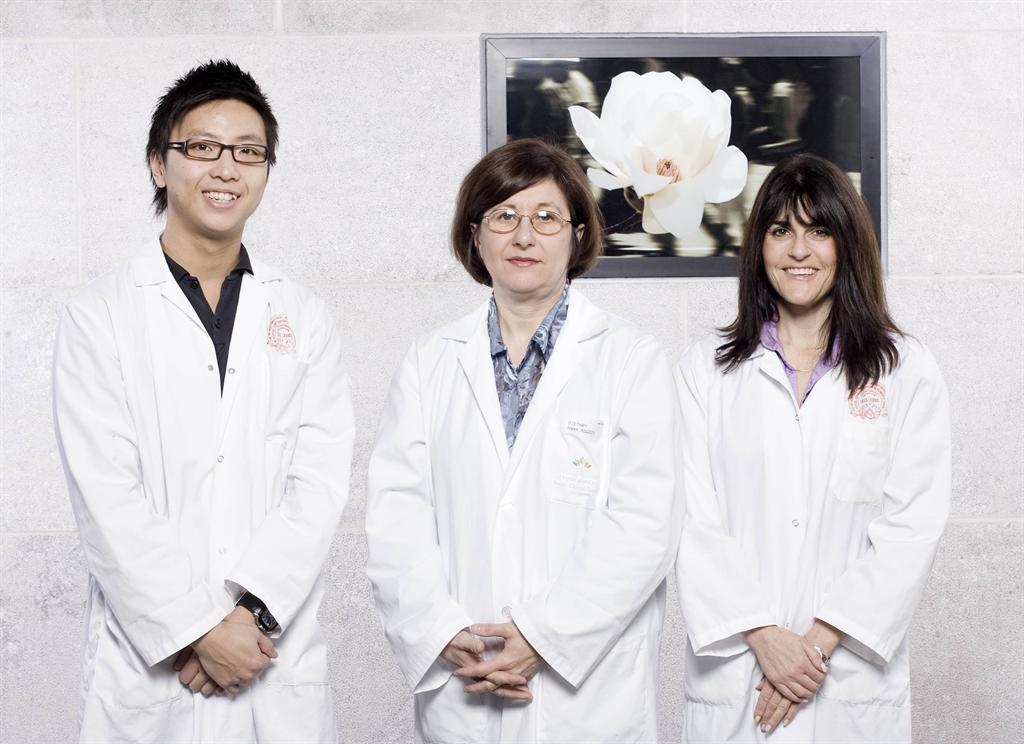Hope & Cope is a volunteer-based psychosocial support program for those dealing with cancer. Guided by professional staff, cancer-experienced volunteers provide support and practical resources that help patients regain a sense of control and well-being, reduce isolation and restore hope. Easily accessible and open to all, Hope & Cope is funded by the community and operates from three sites: the Oncology Department at the Segal Cancer Centre; the JGH Palliative Care Unit, the JGH/Hope & Cope Wellness Centre and the Department of Radiation-Oncology. A team of 25 volunteers reach out to patients receiving treatment, offering support, resources such as wigs and information kits, peer mentorship, as well as more information about the services a available at Hope & Cope and the Wellness Centre. These include support groups, fully supervised exercise and physical activity programs, tai chi, relaxation, creative therapies, nutrition and public education.
An information kit prepared for patients can be downloaded here: ![]() Hope & Cope Information Kit
Hope & Cope Information Kit
To visit the Hope & Cope website, click here.
The ![]() Canadian Cancer Society offers many resources and literature that you may find helpful.
Canadian Cancer Society offers many resources and literature that you may find helpful.
Dietitians
Left to right: Johnie Ting, Anna Aguzzi, M.Sc., P.Dt., Heather Nathens, B.Sc., P.Dt., CDE
Dietitians are important members of the oncology health care team. Dietitians evaluate patients’ nutritional status and help to ensure that they meet their nutritional requirements during each phase of their cancer treatment. They work closely with patients and their families/caregivers to provide individualized nutritional information to help them attain their nutrition goals. The dieticians’ goal is to optimize patients’ nutritional health and improve their tolerance to treatment in order to help enhance their daily well-being.
Social Services
For more information regarding the JGH Social Services Department, click here.
Psychologist
The services of a psychologist, Dr. Sylvain Neron is available for patients receiving care in the Radiation Oncology Division. He obtained a Ph.D. in clinical psychology from University of Montreal in 1986. From 1980 to 1995, he worked in two psychiatric services. In the early eighties, his clinical focus shifted to psycho-oncology. In addition to his initial training in psychodynamic psychotherapy, he became a specialist of adapting stress management strategies and cognitive-behavioral therapy techniques to the several contexts of the cancer treatment continuum for persons dealing with cancer and their caregivers, and offered existential psychotherapy in palliative care settings. From 1990 to 1995, he authored and co-authored several publications : « Vivre avec le cancer », « Vivre avec un malade... sans le devenir ! », « Des outils pour maîtriser l'anxiété et la panique » (éditions du Méridien) and « L'art et les voix de l'accompagnement: À l'écoute de la souffrance et de la maladie », (éditions MédiasPaul). Dr. Néron is a Faculty Lecturer in the Department of Psychiatry at McGill University and Associate professor in the Department of Social Work of Laval University.
Palliative Care
The services of two palliative care MDs, Dr. Bernard Lapointe and Dr. Jean Zigby, are available to patients of the Radiation Oncology Division. They see patients once a week in the Radiation Oncology Division upon request from a Radiation Oncologist or a medical doctor outside the Radiation Oncology Division. To find out more about the Jewish General Hospital's Palliative Care Services, visit http://jgh.ca/en/palliativecare.
Administrative and Clerical Support

Top row: Mali, Corine, Lucrezia, Nila
Bottom row: Susanne
The ‘behind the scenes’ activity is quite comprehensive. The Administrative and Clerical Support team is accountable to the Department Head. Their thorough knowledge of the division's functioning is key to the Radiation Oncology Division. Booking consultations, follow-up appointments, ensuring medical records are accurate and up-to-date are just some of the vital tasks associated with this team. Always in constant and direct contact with patients, they keep the division running smoothly.

